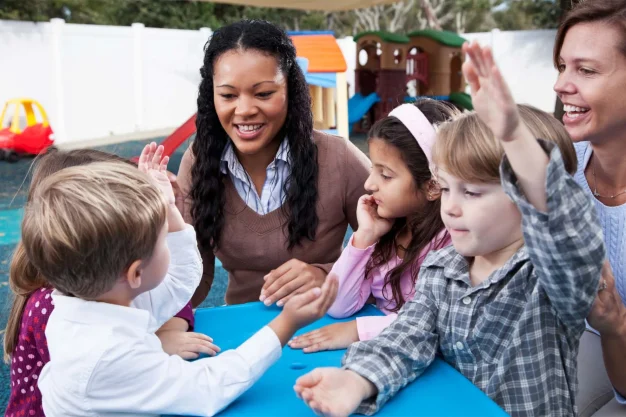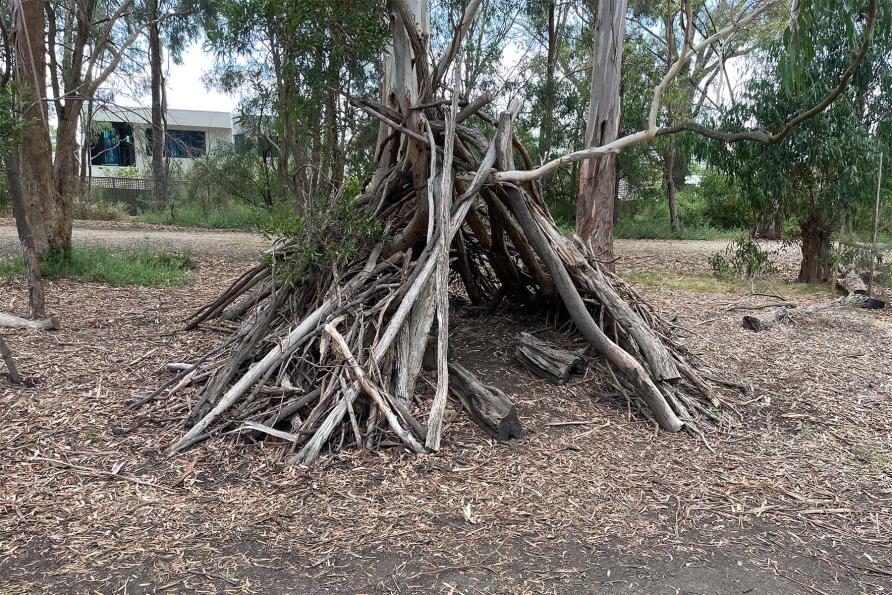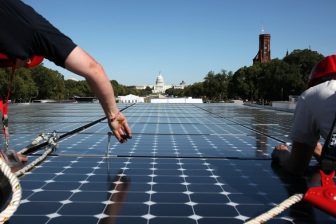
Australia: ‘Bush kinder’ turns nature novices into eco-experts
Australian preschools typically include both indoor and outdoor spaces for children to play and learn in. However, many children – particularly those living in urban areas – have limited access to, and are spending less and less time in ‘wild’ outdoor spaces. This includes forests, beaches and under-developed parklands.
As urban areas expand, fewer of these under-developed spaces are left for children and parents to access easily. This makes nature-based early childhood education essential to teach our young children about caring for and interacting with the natural environment.
In Victoria and other parts of Australia, the number of bush or nature kinders have been growing since the early 2010s, says Dr Chris Speldewinde of the University of Melbourne. The benefits of bush and nature kinders were recently recognised by the Victorian Government, with Minister for Early Childhood and Pre-Prep, Ingrid Stitt, dedicating $3.6 (AUS DOL) million to fund 150 Bush Kinder programs each year for the next four years.
This will give many more Victorian children access to outdoor education during their pre-schooling.
Child-led learning
Influenced by Australia’s Early Years Learning Framework and other curriculum documents, the education in bush kinders is often child-led, where children are free to roam, play, be creative and discover what is available in nature for play.
Toys, balls, and almost all man-made activities are removed leaving only what nature provides such as sticks, leaves, grasses and the child’s imagination to run wild for three to four hours.
The teaching approaches vary in these settings, with educators using ‘modelling of play’, ‘intentional teaching’ or simply open-ended, discovery-based children’s play.
I have been researching bush kinders since 2015, beginning with a research project with Professor Coral Campbell and Associate Professor Anna Kilderry from Deakin University. This study focussed primarily on STEM (Science, Technology, Engineering and Mathematics) teaching and learning in bush kinders.
My current project at the University of Melbourne again looks at STEM teaching and learning in bush kinders but with a focus on curriculum, risk-taking and assessment.
Nature novices to nature experts
One of our key findings is seeing the transformative impact that bush kinder has on 4 to 5-year-old children.
Many pre-schoolers begin bush kinder as nature novices, and can be overheard saying, “I’m bored”, “I hate bush kinder” or “there’s nothing to do”.
A remarkable transition then takes place over a bush kinder year. The children grow and develop greater understandings of the environment and themselves, become attuned to their surroundings and take their learning home to apply in other realms of their lives.
After a year of bush kinder, children often become nature experts, can identify different animal and plant life, understand changing seasons, and become confident tree climbers and creative risk takers.
Attention to detail flourishes
The educators we spoke with often commented on how children were oblivious to the outdoors and nature when they first attended bush kinder. But that soon changed.
As I spent more time in the bush kinders, I was amazed at how the children would tell me about what they were seeing in nature, with intricate detail and a remarkable comprehension of STEM.
One educator told me that the children noticed the tiniest things in nature and they would often sit pondering what was happening around them.
Children who attend bush kinders show a remarkable comprehension of STEM. Picture: Supplied
Parents also remarked how valuable bush kinder was. One parent said her family had gone on a weekend bush walk and she was astonished at how her 4-year-old daughter was interacting with and actively observing things in the environment like the different types of fungi or birds, and the changing weather.
These were considerations her older children, who had not attended bush kinder, were missing.
The power of noticing
Through this research, I began to ask myself, if the children who attend bush kinder are becoming increasingly aware of the world around them, what are we adults missing in our understanding of how children learn about nature? What if we don’t notice what the children notice?
It’s therefore crucial that some of the increased funding goes towards educating bush kinder teachers in encouraging children to be aware of their surroundings, to emphasise the power of simply noticing.
It is important to consider the different approaches to teaching and learning in this setting and to highlight how valuable the relationships between adults and children are in supporting their play-based interactions in nature.
As children transition from nature novices to nature experts they develop confidence in the world around them. This confidence is fostered in a bush kinder world that is rich in STEM learning opportunities, ranging from the science of the weather, gravity, balancing and mixing mud, to the technology and engineering associated with building cubby houses, to the mathematics of navigating natural obstacles in a bush kinder space.
Through my research, I have seen the important developmental role bush kinders play in building children’s confidence, engagement with and understanding of nature.
Therefore, it is fair to say that bush kinder programs provide opportunities for preschool children to build a connection with nature, develop environmental awareness and learn skills including risk-taking, persistence, predicting, and social and emotional awareness.
Most notably, it’s clear that children can build fundamental skills that they can apply to future learning, allowing for more nuanced noticing to occur.
By helping children develop these life-long skills, bush kinders can play a pivotal role in transforming our young people into leaders of the future.
Dr Chris Speldewinde is a Lecturer at the Melbourne Graduate School of Education, at the University of Melbourne. This article was first published on Pursuit. Read the original article.





